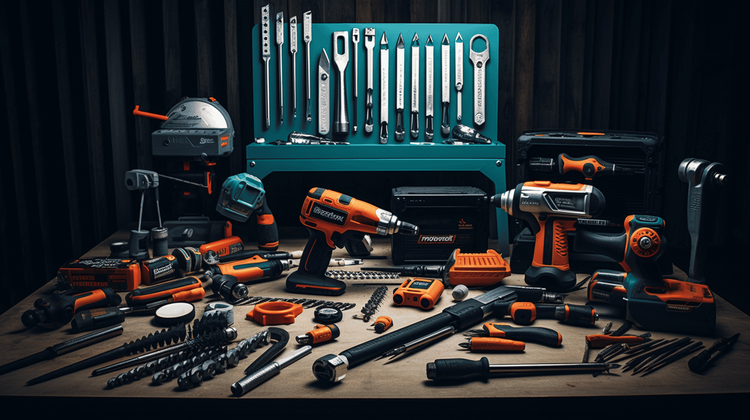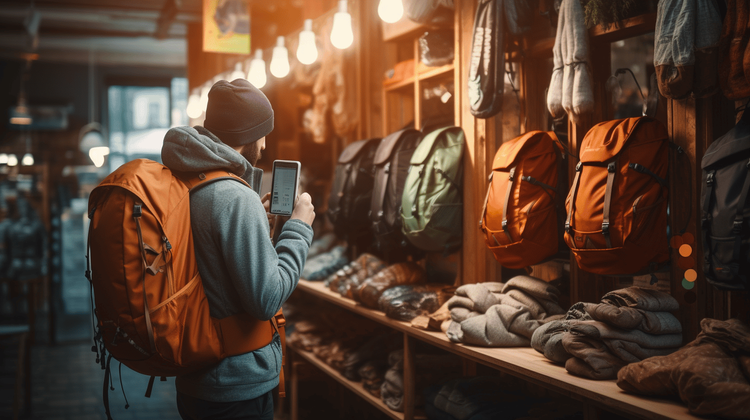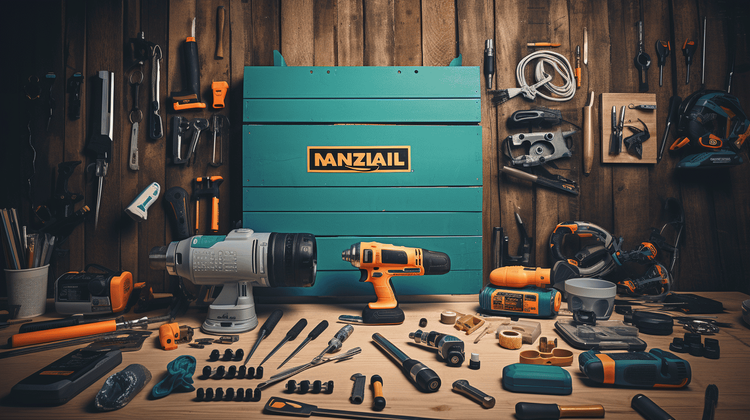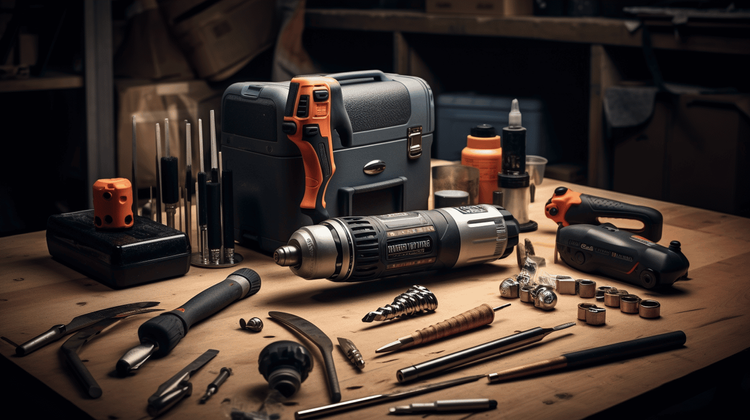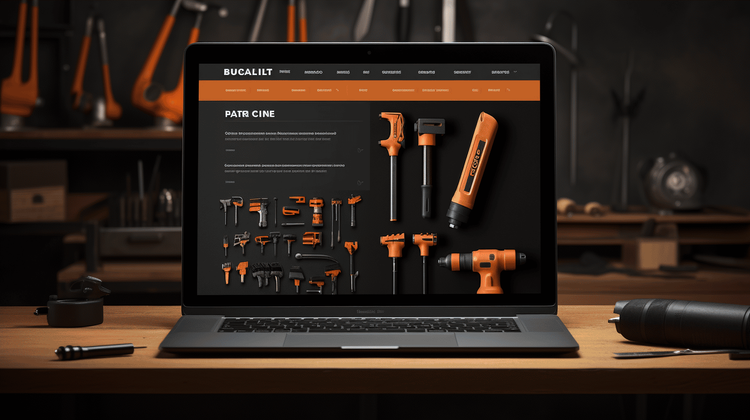Smarter Online Shopping: Strategies for Buying Outdoor Gear on a Budget
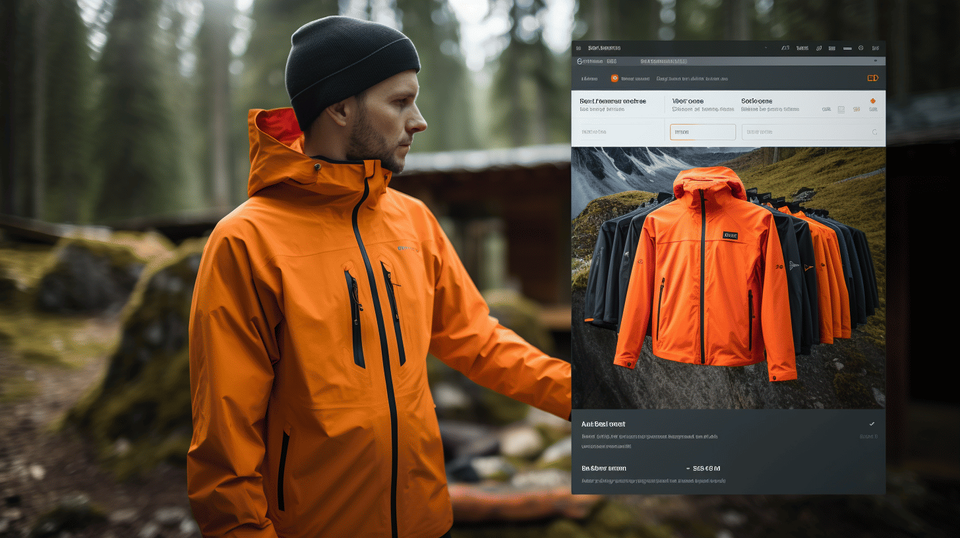
Shopping for outdoor gear can be an exciting adventure, but it can also hurt your wallet if you aren't careful. Often, the costs of high-quality outdoor gear may seem intimidating, leaving many nature enthusiasts wondering how they can afford this essential equipment on a budget. If you're one of those avid adventurers asking, "How can I spend less and still get the quality I need?", then you're in the right place! 🌎🥾🎒
In this article, we'll dive deep into the world of outdoor gear—exploring why these items can be expensive and outlining smart strategies for buying gear online without breaking the bank. But that's not all! We'll also reveal the best times to shop for your gear, the added advantages of smarter online shopping, and how to balance cost-saving with safety when considering used gear.
So, strap yourselves in! Your journey to becoming an outdoor enthusiast with a knack for budget-friendly shopping is about to begin. Maybe grab a cup of coffee ☕, or tea 🍵, sit back, relax, and let's explore the world of budget-friendly outdoor gear shopping together. Trust us; you won't want to miss this!
Why is Outdoor Gear Expensive
For many outdoor enthusiasts, the price was likely the first shock when they purchased their initial set of gear. Whether it's boots, jackets, tents, or hiking poles, outdoor gear seems to always come with a hefty price tag. The question then arises: why is outdoor gear so expensive? The answer lies in a combination of factors: high-quality materials, advanced technology, and brand reputation.
High-Quality Materials
Most of the outdoor gears are made of high-quality, rugged materials specifically designed to withstand the harshest of conditions, and that in itself can be expensive. Here's why:
- First, durable materials are crucial for safety. Hiking boots, for example, must be sturdy enough to protect your feet from sharp rocks and slippery surfaces.
- Second, many outdoor items need to be weather-resistant. Jackets and tents, for instance, should hold up well under heavy rain or snow.
- Finally, quality materials often mean longevity. While cheaply made items may fall apart after a few uses, higher quality gear tends to last for several years.
Advanced Technologies
Another significant contributor to the high cost of outdoor gear is the implementation of advanced technologies. Manufacturers invest substantial resources in the research and development of innovative solutions, all aimed at making outdoor ventures safer, more comfortable, and more rewarding.
- For example, some jackets feature breathable but waterproof fabric technology 🧥 that isn't merely draped on you—it's thoughtfully designed to keep you dry while also allowing excess heat and moisture (from sweat) to escape.
- Ultra-lightweight camping equipment ⛺, equipped with heat-reflective technologies to keep you warm in cold weathers, could also have you digging deeper into your pockets.
Brand Reputation
We can't ignore the influence of brand reputation on the cost of outdoor gear. Much like other industries, well-known outdoor brands often charge a premium for their products.
- This price includes not only the physical product but also the symbolic value associated with these brands.
- Big-name brands typically offer guarantees or warranty programs, promising to repair or replace items if they fail. They may also offer excellent customer service and support. Such benefits are part of the reason why many shoppers are willing to pay extra for these brands.
In a nutshell, while the upfront cost of outdoor gear may seem excessive, it often reflects the quality, innovative technology, and reliability that these products provide. In this case, it is a classic case, you get what you pay for. After all, when you're halfway up a mountain or deep in a forest, the last thing you want is for your gear to fail.
How to Buy Outdoor Gear on a Budget
When it comes to exploring the great outdoors, having the right gear is essential. From hiking boots to tents and survival kits, the proper equipment can make your adventures safe and enjoyable. However, gearing up doesn't necessarily need to break the bank. With a little ingenuity and savvy shopping, you can build a high-quality outdoor kit on a shoestring budget. Below, you will find an insightful guide laden with tried and tested strategies to help you navigate the world of budget gear shopping. Let's dive in! 💰👟🏕️
Setting a Budget:
An integral first step to buying outdoor gear on a budget is setting a realistic spending limit. Understanding your financial constraints will not only keep you from overspending but also help you prioritize what gear you truly need. When setting your budget:
- Consider your outdoor activity frequency. If you're frequently hitting the trails or camping out, it may be worth allocating a little extra for durable and resilient gear.
- Decide what gear is necessary and what’s nice-to-have. Defining these two categories will guide your spending decisions.
- Don't forget the hidden costs. Things like maintenance, possible repair expenses, and necessary accessories should factor into your budget planning.
Research and Compare Prices:
Once you've got a budget in place, it's time to hit the (virtual) shops. But first, embrace your inner detective 🕵️♀️ and deeply investigate your desired items. Compare prices across several retailers - both online and offline. Read reviews from customers and experts to enlighten yourself about the product's true value. Considering the cost per use rather than just the initial price tag can lead to smarter purchases.
Look for Sales Promotions:
Waiting for sales promotions is one of the oldest and most effective strategies to save money. Make sure you keep an eye out for end-of-season sales, Black Friday deals, Boxing Day bargains and even back-to-school discounts. Signing up for newsletters or joining loyalty programs can give you exclusive access to sales and additional discounts.
Consider Used or Refurbished Items:
Going pre-loved or refurbished doesn't necessarily mean compromising on quality. There are plenty of online marketplaces where you can find barely used or factory-refurbished outdoor gear at a fraction of the retail price. Always remember to check the item's condition and the seller's credibility.
Invest in Multifunctional Equipment:
Another clever way to stretch your budget is to invest in versatile and multi-purpose gear. For instance, a Swiss Army knife or a convertible backpack-tent not only saves money but also reduces the
Best Time to Shop for Outdoor Gear
When you're a genuine outdoor lover, shopping for your gear is as exciting as the actual adventure. As it turns out, there's a science to shopping for outdoor gear that can save you some green! Timing is everything, especially when it comes to snagging the best deals. Here, we will share some insights into the best time to shop for outdoor gear and how it can benefit your budget and overall shopping experience.
Have you ever heard of the phrase "timing is everything"? It turns out this is especially true in the realm of outdoor gear shopping. Consumer trends and fluctuating demand heavily influence prices throughout the year. So, knowing when to shop might just land you a killer deal. 🕰️💰
Post-Season Sales
Most outdoor retailers need to clear out last season's merchandise to make room for the new arrivals. So, after a particular season ends, you're likely to find plenty of discounted items in these categories:
- Winter gear in early spring
- Hiking equipment in late summer
- Camping gear in early fall
These post-season sales can save you a considerable amount of money. But remember, the availability of sizes and styles might be limited.
Holiday Sales
Nothing screams shopping season quite like holidays. Whether it's Labor Day, Black Friday, or Boxing Day, you're bound to come across some jaw-dropping deals. Retailers tend to offer incredible discounts on these occasions.
"Nothing ever becomes real 'til it is experienced” - John Keats
Experiencing the great outdoors in all its glamorous glory requires preparation, and that includes equipping yourself with the right gear. No matter the season or holiday, consider setting up a watchlist of desired items to keep track of fluctuating prices.
Remember, timing isn't everything, though. Other factors, such as budget, need, and preference, should guide your shopping. So while timing your purchase can drastically reduce costs, choosing gear that suits your outdoor adventure needs is just as important.
Now you're ready to strike when the iron is hot! Bear in mind these essential tips, and you might just impress your peers with the impressive deals on your new outdoor gear. Happy shopping! 🎒🏕️🧗♀️
Advantages of Smarter Online Shopping
Let's face it: We all love shopping. Yet, traditional shopping can sometimes be a bumpy ride, with crowded stores, long queues, and parking woes. So, how about a smarter solution? That's where online shopping steals the show, offering a treasure trove of benefits! 👍
Save Money
Of course, who doesn't want to save some extra dough? Online shopping allows customers to compare prices across various online stores. You get the freedom to browse through multiple sites and choose products that offer the best value for money. Plus, online sales and discount codes? Yes, please! Notably, there are even 'nights only' and 'weekend' deals that traditional stores seldom offer.
Get Better Quality Items
Online shopping is not just about lower costs. Have you ever underestimated the joy of reading user reviews before purchasing? Online shopping platforms provide transparent customer feedback, making it easier to determine product quality. This feature gives shoppers the much-needed assurance about an item's worth and durability.
Reduces Impulse Buying
Are you guilty of impulse buying? Well, don't worry, online shopping comes to your rescue. When you shop online, you can take your time, think it through, and make the final decision. No pressure from salespersons or falling for those strategically placed impulse items near the check-out lanes!
Ensures You Get the Right Gear
Imagine ordering a size-6 dress only to realize it's misfit—sounds distressing, right? Online shopping allows you to check the size guides and measurement charts to ensure you get the perfect fit. And if it still doesn't fit right, most online stores offer easy return and refund policies, making shopping a hassle-free experience! 🌟
Environmental Benefits
Last but not least, let's not underestimate the eco-friendliness of online shopping. As more and more people switch to buying online, the number of people driving to physical stores decreases, resulting in reduced carbon emissions. Besides, e-receipts are also an excellent instrument to save paper and contribute to a greener planet. 🌍
To wrap it up, smarter online shopping provides shoppers not just convenience, but many more added benefits. So, the next time you plan to indulge in retail therapy, don't forget these compelling reasons to do it online!
Safety Precautions for Buying Used Gear
Buying used gear, be it for camping, photography, musical endeavors, or any other adventure, comes with a considerable set of benefits. Not only does it help you save money, but it also allows you to explore different types of equipment without blowing your budget. However, it's pivotal to exercise caution and take safety precautions to ensure that the gear you're procuring is in good condition and won't compromise your safety. Here are some tips that can aid in making safer, better-informed decisions about buying used gear.
Check for Quality Assurance
Before making a purchase decision, ensure that you've verified the gear's quality. You don't want to end up with an item that ceases to function after a few uses or, worse, poses danger due to poor construction or maintenance. Here's how:
- Look for reputed brands: Gear from established and popular brands are more likely to have gone through rigorous quality assurance processes and are generally more reliable.
- Research the product's history: If available, ask about the gear's history or check it online. Has it been recalled in the past? Have other users reported any consistent issues? These could be red flags.
- Request for certification: If applicable, ask for any existing certification or proof that the item has passed the necessary safety inspections.
🤓 Fun Fact: The more diligently you scrutinize the product, the higher the chances of scoring a good deal!
Assess Gear Functionality
When sifting through used gear, it's crucial to check whether the item's functionality is intact. Be cautious of any gear with missing parts or apparent defects. Here's how you can assess the gear for functionality:
- Test the gear: Whether it's a camping stove, a camera or an amplifier, always test the equipment before buying it.
- Know what to look for: For example, if you're getting a used camera, check the lens, sensor, and shutter for any damages or irregularities. Every piece of gear has its own set of important functionalities, familiarise yourself with these details.
- Consult an expert: If you're not too confident about assessing the gear yourself, it's a wise idea to have someone knowledgeable accompany you to make the assessment.
Verify Gear Condition and Longevity
You want your investment in used gear to last for an extended period. Therefore, it's essential to verify the gear's condition and estimated longevity.
- Check for wear and tear: Minor signs of usage are normal, but more significant damages could affect the longevity of the gear.
- Ask about the gear's age: Older gear may be cheaper, but it might also have a shorter lifespan.
- Consider maintenance requirements: Some gear might need regular servicing to stay in functional condition. Ensure you're ready for the upkeep before making your purchase.
By taking these precautions, not only will you safeguard your investment, but also make an eco-friendly choice by opting for used gear, thereby reducing waste and promoting sustainability. So, step forward with confidence and enjoy the adventure ahead!
Conclusion
Navigating the world of online shopping for outdoor gear can look daunting initially, especially when on a budget. However, with the right strategies and a healthy dose of patience, you can take home quality equipment without putting a dent in your wallet.
Remember, quality should always reign supreme over cost. Savings on gear that doesn’t suit your needs or falls short on performance, can translate to additional expenses in the long run. But don’t let this discourage you. Non-branded products offer the same advanced functionality at a fraction of the cost, others can serve multiple purposes reducing the need for various purchases, and there is always an abundance of sales promotions especially during specific seasons.
For the DIY enthusiasts or professionals in physical jobs, organizing your gear is as crucial as purchasing. A neat trick is to invest in the Bit Holder Keychain from Ultra Handy. This space-savvy tool will not only keep your screwdriver bits from being misplaced but also make them readily available when needed.
Why not make your shopping even smarter? Get out there, apply these tips, and let us know about your great finds!
Frequently Asked Questions
- What are some strategies for buying outdoor gear on a budget?Some strategies for buying outdoor gear on a budget include: 1. Shop during sales and discounts, 2. Buy second-hand gear, 3. Rent gear for occasional use, 4. Look for clearance or last season's gear, and 5. Compare prices from different retailers.
- Is it safe to buy outdoor gear online?Yes, it is generally safe to buy outdoor gear online, as long as you follow necessary precautions. Make sure to purchase from reputable websites, read product descriptions and reviews, check return policies, and use secure payment methods to ensure a safe and secure online shopping experience.
- How can I find the best deals on outdoor gear?To find the best deals on outdoor gear, consider signing up for retailer newsletters or following them on social media to stay updated on sales and promotions. Additionally, use price comparison websites, search for coupon codes, and keep an eye out for seasonal or holiday discounts.
- What should I look for when buying second-hand outdoor gear?When buying second-hand outdoor gear, it's important to thoroughly inspect the item for any damages or signs of wear. Ask for detailed photos and information from the seller, check measurements and sizes, and inquire about the gear's history and condition before making a purchase.
- Are there any online platforms specifically for buying and selling outdoor gear?Yes, there are several online platforms specifically for buying and selling outdoor gear. Some popular options include GearTrade, REI Used Gear, eBay, and Facebook Marketplace. These platforms allow you to find great deals on both new and used outdoor gear.
